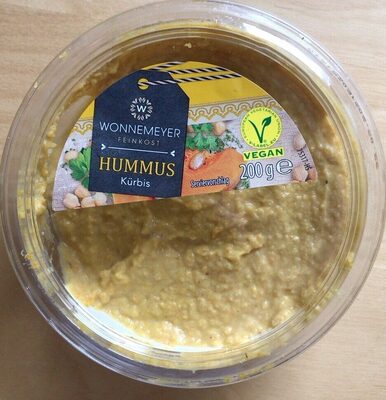
Barcode: 4061458024082
Hummus – Kürbis
HALAL
📝 Reason: The product is considered Halal as it contains no Haram ingredients. The doubtful status of Branntweinessig does not affect the overall Halal status as it is not confirmed to be Haram. Islamic dietary laws permit the consumption of all plant-based ingredients unless contaminated with Haram substances.
📄 Certificates: None
Ingredients:
Details
Understanding the Halal Status of Hummus – Kürbis
As a popular spread, Hummus – Kürbis has caught the attention of many health-conscious individuals, particularly in the context of Halal dietary laws. For those who adhere to these practices, understanding the Halal status of this product is crucial. So, is Hummus – Kürbis Halal? The short answer is yes!
The product is crafted from a combination of ingredients that are primarily plant-based, which aligns perfectly with Halal dietary guidelines. There are no Haram ingredients present, making this hummus not just a delicious choice but also a safe one for those following Halal rules.
Ingredient Breakdown
Let’s delve deeper into the ingredients that make up Hummus – Kürbis:
- Kürbis (Pumpkin): This is a plant-based ingredient that is generally considered Halal.
- Kichererbsen (Chickpeas): Another plant-based staple, widely accepted in Halal diets.
- Wasser (Water): Water is universally considered Halal.
- Sesampaste (Tahini): A paste made from sesame seeds, fully compliant with Halal standards.
- Rapsöl (Rapeseed Oil): A plant-based oil that is also regarded as Halal.
- Zucker (Sugar): Derived from plants, this ingredient is Halal-friendly.
- Branntweinessig (Distilled Vinegar): This ingredient raises some questions as it’s derived from alcohol. However, its Halal status is not confirmed to be Haram as it heavily depends on its source and production methods.
- Tomatenpüree (Tomato Purée): A Halal-compliant ingredient derived from fresh tomatoes.
- Salz (Salt): A mineral and universally accepted as Halal.
- Ingwer (Ginger): Another plant-based ingredient; Halal approved.
- Knoblauch (Garlic): A flavorful ingredient considered Halal.
- Milchsäure (Lactic Acid): E270 is generally regarded as Halal as well, typically produced by the fermentation of sugars.
- Gewürze (Spices): These are plant-derived and generally Halal.
- Petersilie (Parsley): Another Halal-verified plant herb.
- Ascorbinsäure (Ascorbic Acid): E300 is Vitamin C and is considered Halal.
- Citrusfasern (Citrus Fibers): Plant-based fibers also considered Halal.
Why Hummus – Kürbis is a Halal Choice
The comprehensive ingredient list shows that Hummus – Kürbis includes no Haram substances. Most ingredients are either plant-based or natural compounds, and generally accepted under Halal standards. It’s also important to note that Islamic dietary laws allow for the consumption of all plant-based ingredients unless they have been contaminated with Haram substances.
Even though the Branntweinessig may raise eyebrows due to its origins, it’s critical to note that the Halal status can depend on how the vinegar is processed. It is typically found that reputable manufacturers ensure their products remain within Halal guidelines.
In conclusion, Hummus – Kürbis stands out as a trustworthy product for Halal consumers. With its savory taste profile and nutritious ingredients, it serves as an excellent addition to meals or snacks. This hummus not only caters to the diet-conscious individuals but is also a delightful choice for anyone who enjoys flavorful food.
